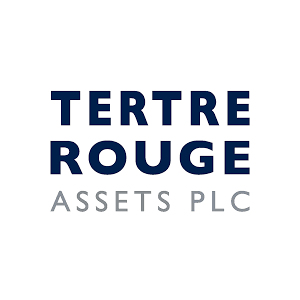Your investor journey.
From high-net worth and sophisticated individuals, to every-day investors, Shadow Foundr has an opportunity for everyone. Start your investor journey by browsing through our curated collection of innovative, tech-inspired startups and share in the success of driven and exceptional founders.
Register on our investor platform
Sign-up to our platform by filling out some personal details and selecting your investor type between high net worth, sophisticated and everyday investors.
Categorisation
Select your preferences as an investor and which sectors you are most interested in investing in, so that we can cater our list towards you and your goals.
Appropriateness questions
Fill out our questionnaire consisting of 8 appropriateness questions, in order for us to gage the kind of risks you will be taking as an investor and whether we will be able to mitigate them.
See our approved start-ups
After you’ve told us your investor type, preferences and filled out the questionnaire, you will gain access to our investor platform, where you will be able to scroll through our vetted list of early-stage, high-growth businesses across multiple sectors.
Start investing
Complete our AML check to round off your investment into any startup which you believe in is right for your portfolio. AML checks take less than a minute.
The investor platform
Through our investor platform, investors of various types have complete access to a plethora of exciting investment opportunities.
Be part of a thriving and active investor-community, with invites to social events, as well as investment and educational webinars
Access and browse through our collection of highly-vetted, disruptive and scalable startups and early stage businesses
Receive educational articles and commercial insights in our weekly news digest
Our current opportunities

Classic Car Investment
LSE listed company operating in the classic car market by acquiring and holding exceptional car assets and investing in cash-generating busi...

Short-Term VAT Bridging Fund
A short-term lending fund that provides the financing for the VAT due on the purchase of UK commercial property.

MoltexFLEX
New class of advanced modular reactor that provides clean, low cost, reliable electricity and heat.
Investors we welcome to join our network
High net-worth investors
You earn more that £100,000 a year or have net assets in excess of £250,000.
Sophisticated investors
You have invested in more than one unlisted company in the last two years or have been a member of a business angel syndicate or network for at least six months.
Everyday investors
This applies to most investors who are not professional investors. If none of the other categories apply to you, you are an everyday investor.
FAQs
For investors
Crowdfunding is a form of alternative finance, which has emerged outside of the traditional financial system. The crowdfunding model is based on three types of protagonists: the project initiator who proposes the idea and/or project to be funded; individuals or groups who support the idea; and a moderating organisation (the “platform”) that brings the parties together to launch the idea
https://en.wikipedia.org/wiki/Crowdfunding
All potential investors will be subject to a client categorisation and must meet and sign up to one of the following categories, before being able to sign up to the website/platform as a new investor:
— Certified as a “high net worth investor” (HNI) – with an annual income in excess of £100,000 or net assets of £250,000 (excluding primary residence, any benefits in the form of pensions or otherwise and any rights under certain contracts of insurance).
— Certified or self-certified as a “sophisticated investor” – assessed by an FCA authorised firm as sufficiently knowledgeable to understand the risks associated with engaging in investment activity or self-certifying where the individual falls within one of the categories set out in the FCA rules.
— Where the FCA-authorised firm concerned will comply with the “suitability” requirements in the FCA rules or, alternatively, the customer has confirmed before the communication is made that another FCA-authorised firm will comply with the suitability requirements.
— Certified as a “restricted investor” – an individual who has not invested more than 10 per cent of their net assets in non-readily realisable security (net assets for these purposes does not include any primary residence, any benefits in the form of pensions or otherwise and any rights under certain contracts of insurance).
Shadow Foundr has three categories of investor for the purposes of the registration of new investors to the applicant firm’s website/platform:
— Certified High Net Worth Individual (This is applicable to an investor who earns more than £100,000 a year or have net assets of more than £250,000).
— Self-Certified Sophisticated Investor (This is applicable if an investor has invested in more than one unlisted company in the last two years or been a member of a business angel syndicate or network for at least six months).
— Regular Investor (This applies to most investors who are not advised and are not professional investors and do not invest more than 10% of their net assets into unlisted company shares or unlisted debt securities).
— Automatic: Often we can verify your identity automatically when you enter your personal details on the platform before you make a deposit by using a third party online database. But sometimes we are unable to verify your identity this way. This is nothing to worry about and can happen for a number of reasons, for example if you have recently moved house, if the database does not cover the place where you live, or a simple data entry error.
— Document: If we can’t identify you using the automatic process, then we will need to verify your identity using documents as evidence of your identity and address. You will be asked to upload copies of the following two documents through the platform (which can be scans or photos taken on your mobile phone):
— Identity: Government issued photo ID (e.g. passport, national ID card, driving licence); and
— Address: Recent (i.e. within three months) utility bill, bank statement, or a letter from a national or local authority showing your name and address.
The information that you send us will be used solely to verify your identity and will not be used for any other purposes. Please note that we require two separate documents (even if your government issued photo ID also states your address). Once we have reviewed these documents we will let you know whether you have cleared the process or if we require anything else.
Remember that this is only required to be completed before you make your first investment.
